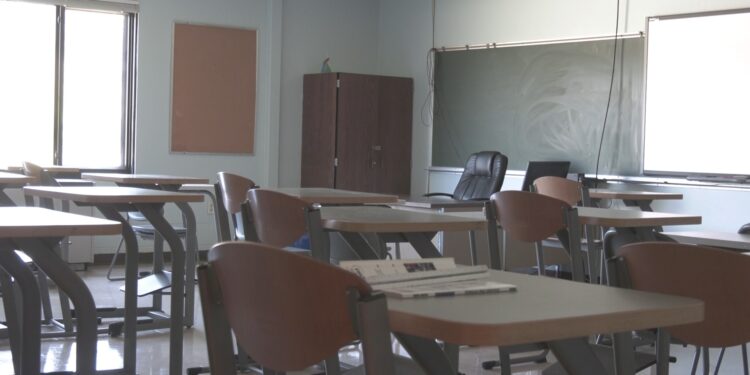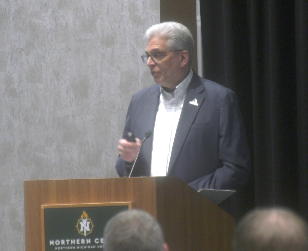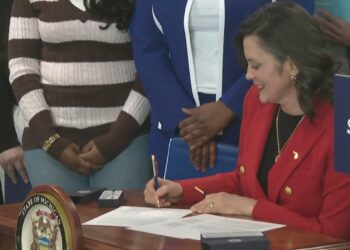LANSING, Mich. (WZMQ) – Michigan House Democrats are rolling out their own education budget proposal ahead of a fast-approaching deadline, warning of potential classroom disruptions if the plan isn’t finalized by July 1.
The proposal includes a 4% increase in higher education funding, as well as a renewed push for programs that lower the cost of college. Lawmakers say they’re focused on expanding access to scholarships and increasing support for high school dual enrollment programs that allow students to earn college credit early.
“Last term, we invested more into the Michigan Achievement Scholarship, $5,500 for all four-year public and private students,” said Rep. Samantha Steckloff (D-Farmington Hills). “It severely cuts the cost for families.”
The plan also includes $50 million in new funding for dual enrollment, pulling the cost out of the K-12 foundation allowance to free up more dollars for school districts. Lawmakers say the move creates more equitable access to college-level and career-tech coursework.
“By putting about $50 million into a dual enrollment program… it provides more opportunity for students to get those college credits before heading to college,” Steckloff added.
Meanwhile, House Republicans have introduced an alternative proposal that boosts the per-pupil funding allowance but cuts higher education support. The chamber must vote on a final plan before beginning negotiations with the Senate.
With the new school year beginning in August and the state’s fiscal year not ending until Sept. 30, lawmakers warn that missing the July 1 deadline could leave school districts in a bind.
“Will there be class size increases? Will there be cuts to support staff like paraprofessionals who help our special education students? Probably,” said Rep. Regina Weiss (D-Oak Park). “That is terrifying.”
Some legislators also noted the impact on extracurricular programs. Rep. Carol Glanville (D-Walker) said her district could struggle to bring back athletic staff if state funding is delayed.
“If we can’t hire coaches back, that’s one of the first things that goes,” Glanville said.
Districts could also face challenges providing free meals and retaining essential staff if the budget isn’t passed on time. Democrats say the funding is available—but reaching a deal will require difficult political decisions.
“The easy thing is to continue to allow public schools to be defunded,” said Rep. Alabas Farhat (D-Dearborn). “That’s what many of my Republican colleagues want to do. We’re not going to do that here.”
Lawmakers have less than three weeks to pass a full budget before Michigan schools begin preparing for the fall semester.










